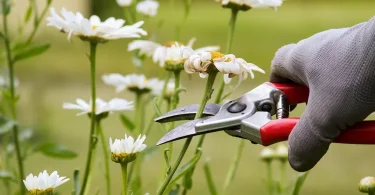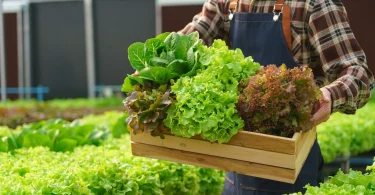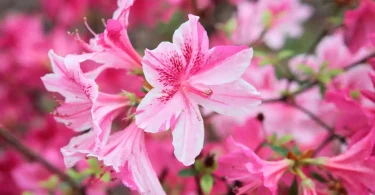Presenting a natural cure and aiming to change the world at the least cost has never been more appealing than in the modern age. There are few tasks simpler than starting a medicinal garden in your backyard which can bring healing and health to your family. Not only do these gardens give one room to relax but also various plants have cures for most illnesses. In this article, you read about Medicinal Plants to Grow at Home, and how they will be of help to you and your health condition.
1. Aloe Vera: The Soothing Succulent
Aloe vera has been recommended for situations where one has a skin complication or common skin disease. This is a tough-leaved plant that is relatively hardy and needs little attention in terms of care. The transparent gel from the leaves of the plant is quite helpful in the treatment of minor burn injuries, cuts, etc. It also has a preremoistening quality and therefore is used in cosmetics for skincare.

Growing Tips:
Light:
To classify plants, it is important to note that Aloe Vera plants prefer an environment of bright but indirect light.
Water:
Water lightly but quite frequently, avoiding freeing it as it is better to keep the earth rather dry.
Soil:
Grow it in a well-draining medium, especially a cactus or succulent mix that is formulated for plants that require less water.
2. Lavender: The Calming Herb
Lavender is cherished for its soothing fragrance and calming effects. It’s often used in aromatherapy to reduce stress and anxiety. Additionally, lavender oil can be applied to the skin to help heal minor burns and insect bites, and its dried flowers are a common ingredient in teas that promote relaxation and sleep.

Growing Tips:
Light:
Lavender needs full sunlight for at least six hours a day.
Water:
Water sparingly, as lavender prefers dry conditions.
Soil:
Ensure the soil is well-draining and slightly alkaline.
3. Peppermint: The Digestive Aid
Peppermint is an aromatic perennial herb that grows to around 71cm in height and is commonly used in many cuisines. The list of benefits includes one of the most popular uses of ginger, namely to help with digestion problems like indigestion and nausea. Peppermint tea is known to be sure for the above ailments. Peppermint not only has the added menthol that’s soothing for digestion but also has a cooling effect, and as such, is good for use in muscle balms and ointments.
Growing Tips:
Light:
Peppermint prefers a moderate amount of watering but it can grow both in the sunny region and the shade.
Water:
Ensure that the soil is moist most of the time, but not overly saturated with water during the growth of the acid reducer.
Soil:
It is also important that the soil of choice be rich and possesses good drainages if peppermint is to grow to its optimum.
4. Chamomile: The Gentle Healer
Another herb, that can have a calming effect and is commonly used to treat patients and encourage them to sleep, is chamomile. Chamomile is prepared with dried flower heads is known to have mild sedative effects and is taken for insomnia anxiety and digestive disorders. I am aware that it also has anti-inflammatory effects, which is why when applied to the skin it can solve skin problems.
Growing Tips:
Light:
Chamomile thrives within regions that mostly experience full sun, but it can also adapt to a partially shaded area at times.
Water:
Maintain water requirements of the plants at an optimal level of maintaining moisture but not making it marshy.
Soil:
The optimum soil conditions recommended for the growth of this plant are well-draining soils with added organic content.
5. Echinacea: The Immune Booster
Echinacea and is popularly called coneflower The efficacy of echinacea is attributed to its ability to bolster the immune system. It is particularly prescribed for use in attempting to lessen the symptoms and prevalence of colds and flu. The roots, leaves, and flowers, for example, are all useful mainly as remedies that are formulated as teas tinctures, or supplements.
Growing Tips:
Light:
Certain plant varieties, like echinacea, require full sun exposure to the sun and get damaged when exposed to too much shade.
Water:
Water frequently as ferns like moist conditions but make sure that water drains well through the soil.
Soil:
These include sandy or loamy soil to promote good drainage which is best for the growth of the plant.
6. Calendula: The Skin Soother
The plant calendar or pot marigold is commonly characterized by its bright orange and yellow hues. It is particularly cherished for its uses in soothing swelling and bacteria infector qualities that make it essential in lotions and pastes for use when one is having some injuries or inflammation on the skin. It also has other uses such as calming of sore throat and digestive system health.

Growing Tips:
Light:
Calendula grows best when planted in full sun retaining the capability to grow in a bit shaded area.
Water:
It needs to be watered frequently but not to the point of water-logged soil conditions all the time.
Soil:
As for soil, it is better to select a well-draining kind with the addition of organic materials.
7. Lemon Balm: The uplifting Herb
Lemon balm is an annual herb used in aromatherapy for its fresh lemon smell and has several positive influences on the mood of people. It is usually incorporated into teas to treat stress, anxiety, and insomnia individuals. A Few Secondary Uses Lemon balm also possesses an antiviral effect and thus the leaves can be used to apply on cold sores.
Growing Tips:
Light:
Though it can be grown in a partially shaded area it is best suited for a sunny position.
Water:
The soil, hence, needs to be consistently moist at all times throughout the process of growing marijuana.
Soil:
The neutral to slightly acidic, loamy, friable texture soil is considered the best for the crop.
8. Thyme: The Antiseptic Powerhouse
Thyme is another strongly growing plant that has rather specific medicinal effects as an antiseptic for infections in the respiratory tract and inflammation. Today, thyme tea is known to help in treating cough and sore throat while the oil extracted is used in preparing mouthwash and skin treatment.
Growing Tips:
Light:
Hence, this plant requires full amounts of sunlight for it to grow well healthy, and better.
Water:
Water them frequently but do not overflood the plant, let the land dry before you water it again.
Soil:
The soil should be sandy and should drain well or have a high permeability in terms of soil mechanics.
9. Sage: The Memory Enhancer
Sage is valued not only for its consumption as a spice or as an ingredient in various dishes but also for its healing properties. This effectively reduces inflammatory responses, neutralizes reactive oxygen, and inhibits bacteria and fungi growth. Sage tea is known to have soothing effects concerning digestion, anti-inflammatory properties, and improving memory significantly.
Growing Tips:
Light:
Some sages need direct, and both varieties need complete sunlight, so this should be given priority.
Water:
Water the plants with care but do not overwater them for this will cause them to rot.
Soil:
That’s why it is necessary to use good drainage, that is, the material where the newts will be puttings has to drain out the water properly.
10. Basil: The Adaptogen
Basil, particularly holy basil (Tulsi), is stated to possess adaptogenic properties by which stress is managed in the body system. Therefore basil leaves are used in preparations of tea and other beverages, salted and boiled in salads, and in any other type of prepared cooking. This herb is rich in substances with anti-inflammatory and antibacterial activity, as well as antioxidant properties.

Growing Tips:
Light:
Basil should be planted in a full-sun area of your garden or the place where you intend to grow the crop.
Water:
Maintain the soil wet always but avoid forming a hard layer on its surface which may prevent the best growth of the plant.
Soil:
Such species prefer rich, well-draining soil and are often found growing on cliffsides, which provide the perfect growing environment.
Creating Your Healing Garden
Learning how to start a medicinal garden, at home is not only rewarding but can be functional too. Here are a few tips to help you get started:
Choose the Right Location:
Many medicinal plants need a lot of sun therefore plant them in an area of the garden that has a lot of sun if you are going to be growing the plants in the garden, if they are to be grown indoors then plant them near a window.
Prepare the Soil:
Make sure that the soil has a good drainage system, preferably mixed with organic composts. This way you can directly control the soil quality and thus you can prefer pots or raised beds.

Water Wisely:
One must be very careful about overwatering as it can also cause specific harm to the plant as underwatering. Educate yourself about what each plant requires in terms of water and adhere to a regular timetable.
Harvesting:
These should be taken to suit the individual plants since frequent harvesting can not only encourage vigorous growth of plants but also prevent the plants from becoming leggy. Prune plants with clean and sharp scissors or pruners to cut leaves, flowers, or stems whenever you need to.
Companion Planting:
It is even important to note that some plants thrive when grown adjacent to specific plants, as they may improve or suppress each other’s growth. For example, its importance comes out in the techniques of companion planting, where basil can be planted near tomatoes to discourage pests.
Conclusion
A healing garden is not only a place to obtain plants with curative properties but rather a place that possesses the ability to make people better overall. Some of these plants can be grown in large backyards or small balconies; thus, you do not require a huge piece of land to start growing these beneficial plants and, in the process, enjoy the following health benefits? Of course, as you grow your medicinal plants garden, you will find that gardening is a therapeutic process of cultivating total caring, with nature at your fingertips. Read more..



